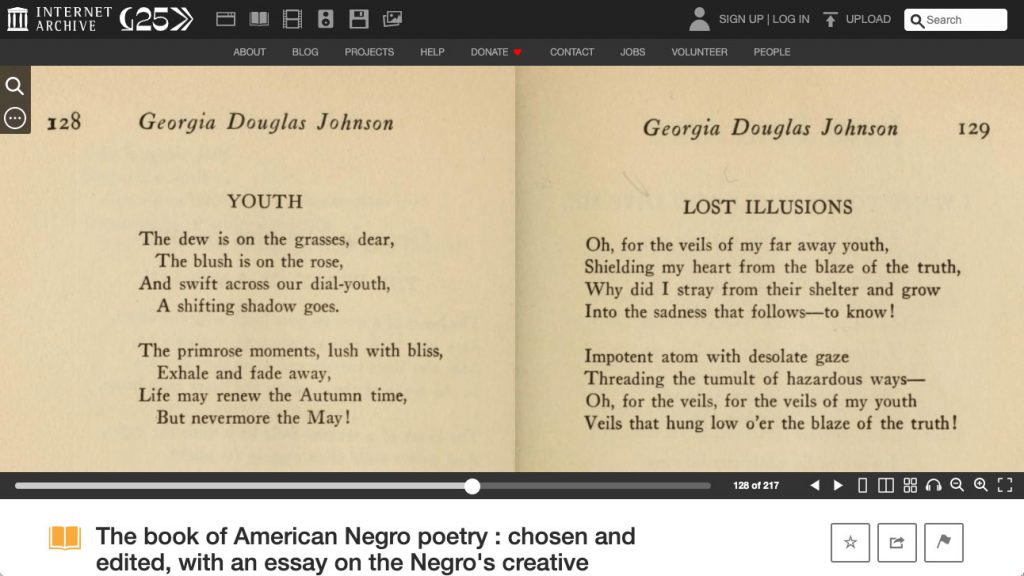Although Casey Patterson spent much of the COVID-19 lockdown in a dank San Francisco basement apartment, he says he felt lucky in many ways.
The graduate student in English from Stanford University stayed healthy and—despite not having physical access to a library—was able to research his dissertation, teach classes, and prepare for job interviews. This was possible because of online access to materials through the Internet Archive.
Patterson, who is entering the sixth year of his doctoral program, offered to teach an online African American literature class to undergraduates as soon as COVID-19 shut down the campus and the university shifted to virtual instruction.
“I just felt a degree of duty to sign up for a lot of teaching. I wanted to be able to support students and knew the transition to online education was going to be rocky,” said Patterson, who also taught an Intro to Black Studies course during the pandemic. “It was chaotic. Obviously, we had a really tough time trying to figure out how to keep students engaged and make education a humane process.”
Instead of expecting students to buy several books, and without the ability for them to check out books in a library, Patterson turned to the Internet Archive. Patterson found works of Black critics such as Toni Morrison and C.L.R. James and their writings about 19th century authors Edgar Allen Poe and Herman Melville to use in class. He downloaded classics including Moby Dick and Huckleberry Finn to the Canvas learning management system and made them immediately available to students.
“Using the Internet Archive, I could lay hands on basically everything I needed. It was an absolutely indispensable resource at the time.”
Casey Patterson, graduate student
“It’s super helpful when you’re asking students to read 10 short passages from three different novels,” Patterson said of using the Internet Archive. “It would be cruel to ask them to buy all of the books or track them down to the library. This way you put them right at the students’ fingertips.”
Patterson also relied on text from the Internet Archive for his own research. For his dissertation, he is examining the role of educational history as a way of understanding African American literary studies and the institutionalization of Black studies as a discipline.
This spring, he interviewed for an academic job in which he was asked to prepare a lesson plan syllabus for a teaching demonstration. Having access to The Book of American Negro Poetry, works of African-American poet Phillis Wheatley, and essays by Alice Walker enabled Patterson to put together materials from the convenience of his apartment on a tight deadline.

“Using the Internet Archive, I could lay hands on basically everything I needed,” Patterson said. “It was an absolutely indispensable resource at the time,” he says.
In the summer of 2019, Patterson had used the Internet Archive in his Fandom research, another area of interest. He’d run across a citation to a website that was no longer available online and was able to track it down through the Wayback Machine. But since the pandemic, Patterson says he’s come to value the Internet Archive for its collection of primary sources.
“Knowledge is for everybody. The more we can do to break down the barriers that make it inaccessible, the better off everyone is,” said Patterson. “The Internet Archive is one great example of how we can do that almost with a click of a button.”

cool